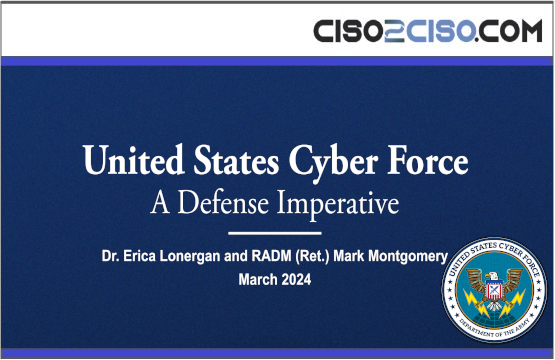In the U.S. military, an officer who had never fired a rifle would never command an infantry unit. Yet officers with no experience behind a keyboard are commanding cyber warfare units. This mismatch stems from the U.S. military’s failure to recruit, train, promote, and retain talented cyber warriors. The Army, Navy, Air Force, and Marines each run their own recruitment, training, and promotion systems instead of having a single pipeline for talent. The result is a shortage of qualified personnel at U.S. Cyber Command (CYBERCOM), which has responsibility for both the offensive and defensive aspects of military cyber operations.
For the last decade, Congress, on a bipartisan basis, has made clear its sharp concern about cyber personnel issues. In 2022, it required the secretary of defense to deliver a report that addresses “how to correct chronic shortages of proficient personnel in key work roles” at CYBERCOM. The report is due on June 1.
Often, however, military leaders have addressed personnel shortages by massaging statistics rather than fixing the underlying problem. In 2018, CYBERCOM appeared to reach a major milestone when it certified that all 133 of its Cyber Mission Force (CMF) teams had enough properly trained and equipped personnel to execute their missions. Yet multiple officers revealed these certifications to be hollow; CYBERCOM merely shifted a limited number of effective personnel from team to team to make them appear complete at the time of certification.
To deepen the understanding of the cyber personnel system and its flaws, this study draws on more than 75 interviews with U.S. military officers, both active-duty and retired, with significant leadership and command experience in the cyber domain. The study identifiesthese officers by rank and service but withholds their names for reasons of privacy.
This research paints an alarming picture. The inefficient division of labor between the Army, Navy, Air Force, and Marine Corps prevents the generation of a cyber force ready to carry out its mission. Recruitment suffers because cyber operations are not a top priority for any of the services, and incentives for new recruits vary wildly. The services do not coordinate to ensure that trainees acquire a consistent set of skills or that their skills correspond to the roles they will ultimately fulfill at CYBERCOM. Promotion systems often hold back skilled cyber personnel because the systems were designed to evaluate servicemembers who operate on land, at sea, or in the air, not in cyberspace. Retention rates for qualified personnel are low because of inconsistent policies, institutional cultures that do not value cyber expertise, and insufficient opportunities for advanced training.
Resolving these issues requires the creation of a new independent armed service – a U.S. Cyber Force – alongside the Army, Navy, Air Force, Marine Corps, and Space Force. There is ample precedent for this approach; battlefield evolutions led to the establishment of the Air Force in 1947 and the Space Force in 2019. An independent cyber service would naturally prioritize the creation of a uniform approach to recruitment, training, promotion, and retention of qualified personnel whose skills correspond to CYBERCOM’s needs. In addition to a single, dedicated cyber training and development schoolhouse, an independent service could establish a cyber war college for advanced research and training, akin to the Army War College and its peers. Without the responsibility for procuring planes, tanks, or ships, a Cyber Force could also prioritize the rapid acquisition of new cyber warfare systems.
Views: 4




















































